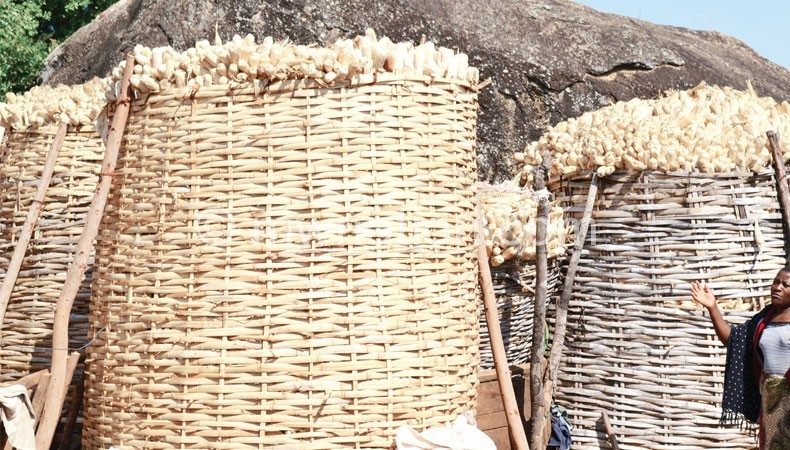Africa’s raging seed battle
Should seeds that African farmers use to grow their crops be left in the hands of multinational companies or it should remain with smallholder farmers themselves? EPHRAIM NYONDO looks at how Africa is responding to this.
There is war going on—one which African smallholder farmers are not safe from.
It is a war between the formal seed sector, where seeds are scientifically produced; and the informal one, where smallholder farmers select their seeds.
It is a war between the interest and voice of smallholder farmers, who represents the informal seed sector, and that of few multinational companies that produce and sell seed, representing the formal seed sector. It is not a war fought with guns or missiles on battlefronts; but it is one fought in boardrooms.
However, so far—if you read the seed policy directions in most African countries—the formal seed sector appears to be winning.
In Malawi, the draft seed policy only recognises the formal seed sector, implicitly, leaving out the informal seed sector, which is a haven for 70 percent of Malawi’s smallholder farmers.
In Kenya, 80 percent of smallholder farmers are still meshed in the informal seed sector but a recently launched national policy guiding manufacturing and distribution of seeds has outlawed the informal seed trade. The story is nothing different in Ghana.
In an article published in the www.theecologist.org journalist Heidi Chow writes about how Ghana’s women farmers resist the G7 plan to grab Africa’s seeds. She notes that sharing and saving seed is a crucial part of traditional farming all over Africa.
She, however, bemoans the new legislation being put in place by Ghana’s government, backed by multinational seed companies, which is imposing oppressive seed laws that attack the continent’s main food producers and open the way to industrial agribusiness.
In Zambia, according to Lusaka Times, the country’s Alliance for Agro-Ecology and Biodiversity Conservation has called on government not to sign the African Region Intellectual Property Organisation (Aripo) draft protocol on the protection of new plant varieties as it criminalises small-scale farmers’ rights to seed and threatens local food security.
It might be that in Ghana, Kenya or Malawi, the story of African farmers and their seeds is nothing different. It is a story that cuts across various farms in sub-Saharan Africa.
Studies have long underlined that just ten corporations control more than 75 percent of the world’s commercial seed market, although in Africa an estimated 80 percent of all seeds still come from farmer-managed seed systems, where farmers save, select and swap their own traditional or indigenous seed varieties.
“Farmer-managed seed systems help to protect bio-diversity as farmers keep a wide variety of seeds. Seeds are selected both to maintain yield but also to preserve traits which respond to different climatic conditions, have certain tastes, appearance and storability,” says William Chadza, executive director of the Centre for Environmental Policy and Advocacy (Cepa).
He adds that commercial seeds, by comparison, are produced for high input mono-cropping farming systems and designed to produce high yields through the application of chemical fertilisers and pesticides.
This, to a local maize farmer like Mercy Alinane in Mvera in Dowa, is not sustainable as she has, every year, to buy new seeds for her small garden.
“I can easily access hybrids seeds these days. I owe everything to subsidy [Farm Input Subsidy Programme] which helps us buy seeds at a reduced price,” she says.
But with reduction of beneficiaries in this year’s Fisp and also government decision to raise prices of some of the farm inputs, people like Alinane will either have a choice to dig deeper into their pockets or return to their saved seeds.
For Alinane, the choice is cut out: “I will return to my saved seeds. I do not have any problem with them.”
Confessions from farmers like Alinane reveal the ugly reality of Africans that formal seed systems in Africa have not been able to meet or capture farmers’ needs.
“Parastatal seed enterprises do not provide seed of many of the crops that farmers grow, the commercial sector has shown little interest in non-hybrid crops, and efforts by NGOs and various local-level organisations are limited in scope. An effective solution will probably require a combination of public, commercial, and local-level participation, but the precise strategies need to be identified,” says Ernest Kayisala, a fourth year biodiversity student at Lilongwe University of Agriculture and Natural Resources (Luanar).
Kayisala’s argument do, somehow, concurs with that of Chancellor College policy specialist Happy Kayuni who wants Africa’s seed policy reviewed before they get approved.
He underlines that African seed policies should have a provision where multinational companies, or formal ones, will be required to enter into partnership with local farmers as part of helping them participate and also build their breeding capacity.
In a 2006 paper titled Strategies for Seed System Development in Sub-Saharan Africa: A study of Kenya, Malawi, Zambia, and Zimbabwe, researcher Robert Tirpp underlined that countries need to develop comprehensive, integrated seed policies.
“Seed policy should be the responsibility of high-level decision-makers. The policy-making body should include (but should not be limited to) representatives of research, regulatory agencies, emergency programs, and extension. The role and expected outputs of public research, in relation to the capabilities and limitations of the private sector, must be more clearly delineated,” he wrote.
The onus, arguably, is on African governments. Will they listen to the voice of the farmers or they will dance to the whims of multinational companies? Time will tell.






